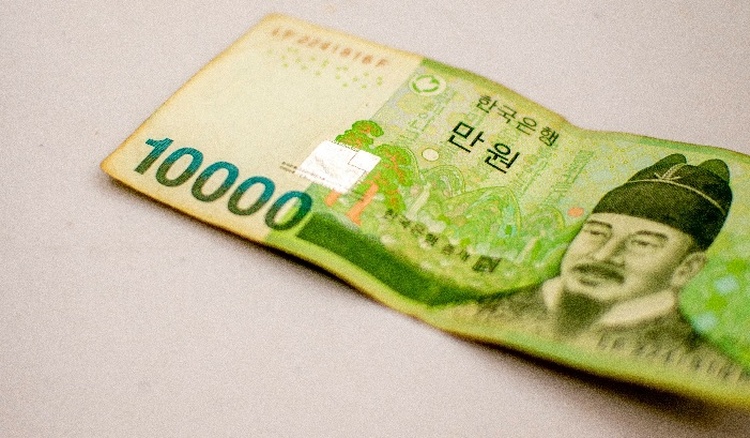돈과 재물에 관해서 성경은 가끔 극단적이며 충격을 주기까지 합니다. 우리가 성경을 읽는 것은 우리의 세계관에 대한 공격이 아니라 위로를 얻기 위함이 아닌가요? 하나님은 사랑과 은혜에 대해서 이야기해주세요, 감사합니다. 우리는 돈과 재물에 대해 이야기하고 원하는 대로 사용합시다.
솔직해지자면 우리는 이렇게 말하곤 합니다.
어떤 신자들은 서로에게 다음과 같은 어려운 질문을 합니다. "말씀을 읽으며 시간을 보내셨나요? 믿음을 나누셨나요? 성적 순결은 지키셨나요?" 하지만 우리는 얼마나 자주 "물질주의와의 싸움에서 승리하시나요?"라든지 "당신을 탐욕으로 유혹하는 그런 잡지나 웹사이트에 들어가시나요?"라는 질문을 하나요?
사람들은 물질주의와의 싸움보다 성적 유혹에 관한 싸움에 보다 열려 있습니다. 물질주의는 마지막 격전지 같은 것이죠. 어떤 교회들은 빚에서 벗어나는 것에 대해 이야기합니다. 그건 좋은 일입니다. 하지만 빚이 없더라도 여전히 인색하고 탐욕스러울 수는 있죠. 우리는 더 똑똑한 물질주의자가 될 필요는 없습니다. 우리는 물질주의에 대해 회개하고 똑똑한 청지기가 되어야 하죠.
예수님은 우리의 마음을 보시고 우리를 잘 아십니다. 모든 제자들에게 모든 것을 나눠주라고 하지 않으시죠. 예수님은 우리가 과격한 행동을 통해 돈과 재물에 대한 집착을 버리고 예수님을 주인으로 섬기며 살아가도록 자유를 주셨습니다. 그리고 우리의 모든 쓸데없는 보물을 버리고 예수님을 우리의 최고의 보물로 모시기 원하시죠. 예수님보다 다른 어떤 것이나 어떤 사람을 더 귀히 여긴다면 우리는 그분의 제자가 아닌 것입니다.
우리가 돈을 어디에 사용하는지는 단순히 우리의 마음이 있는 곳을 가리키지 않습니다. 예수님은 그것이 우리의 마음이 향하는 곳을 결정한다고 하십니다. 보물이 있는 곳에 우리 마음이 있다면 (마태복음 6장 9~21절) 우리가 보물을 다른 곳으로 옮길 때 우리의 마음도 옮겨집니다. 이것은 분명한 사실이죠. 마음을 두기 원하는 곳에 돈을 두어야 하는 것입니다.
사람들이 세례 요한에게 회개의 열매를 맺기 위해 무엇을 해야 하냐고 물었을 때 그는 옷과 음식을 가난한 자에게 나누라고 했습니다. 그리고 세리에게는 돈을 더 걷어서 자기 주머니에 넣지 말라고 가르쳤습니다. 세례 요한은 마지막으로 군인들에게 돈을 갈취하고 거짓으로 고발하지 말며 자신의 봉급에 자족하라고 가르쳤습니다 (누가복음 3장 7~14절).
누구도 세례 요한에게 돈과 재물에 대해 묻지 않았습니다. 하지만 세례 요한은 사람들이 물질을 다루는 방식에 대해 가르치지 않고는 영적인 변화에 대해 말할 수 없다는 것을 그의 대답을 통해 보여주었습니다.
세례 요한이 오늘날 우리를 만난다면 돈과 재물에 대한 우리의 태도와 행동에 대해 어떤 결론을 내릴까요? 우리가 진정한 예수님의 제자라고 결론을 내릴까요? 아니면 세례를 받았지만 자기 자신에게 심취한 세상의 물질주의자와 같은 사람이라고 생각할까요?
마이크로소프트의 경영진 중 한 명인 트리샤 메이어는 저에게 이렇게 편지를 썼습니다. "청지기정신은 크리스천의 삶이에요. 그 삶은 바로 우리에게 주어진 자원을 통해 우리가 하는 행동, 우리가 이 땅에서 걸어가는 모든 하루, 우리의 모든 관계에 대한 것이죠. 청지기정신에서 어려운 일은 돈이라 불리는 문제아를 관리하는 훈련과 의지를 기르는 것입니다."
청지기는 자신에게 속한 것이 아닌 부와 재산을 맡고 있는 사람입니다. 그 재산을 주인의 소망에 따라, 주인에게 가장 이익이 되는 방향으로 관리하는 것이 청지기의 책임입니다. 하나님은 우리에게 삶, 시간, 재능, 돈, 재산, 가족, 그리고 은혜를 주셨습니다. 그리고 우리에게 맡기신 이 모든 것들을 우리가 어떻게 사용하는지 평가하십니다.
주인은 청지기에게 충분한 자원을 주고 주인의 책임을 맡겼습니다. 하나님은 물질적인 청지기정신에 대해 표준화된 체크리스트 같은 것을 주지 않으셨습니다. 대신에 효율적인 청지기정신을 위한 원리가 담긴 그분의 말씀을 주셨죠. 우리는 그 원리와 씨름해야 합니다. 책임감 있는 청지기는 주인이 원하는 바를 주인에게 구합니다. 이를 위해서는 우리 자신의 통찰력과 지혜 그 이상의 것이 필요하죠. "너희 중에 누구든지 지혜가 부족하거든 모든 사람에게 후히 주시고 꾸짖지 아니하시는 하나님께 구하라 그리하면 주시리라" (야고보서 1장 5절).
청지기정신과 관련하여 어려운 결정을 할 때 (그리고 여러분의 마음을 평가할 때) 하나님의 지혜와 힘을 진정으로 원하시나요? 그러면 구하세요. 하나님은 여러분을 어둠 가운데 두지 않으십니다. 하나님은 여러분을 인도할 말씀과 성령을 주셨습니다.
- 네 하나님 여호와를 기억하라 그가 네게 재물 얻을 능력을 주셨음이라 (신명기 8장 18절).
- 여호와는 가난하게도 하시고 부하게도 하시며 낮추기도 하시고 높이기도 하시는도다 (사무엘상 2장 7절).
- 부와 귀가 주께로 말미암고 또 주는 만물의 주재가 되사 (역대상 29장 12절).
청지기정신이란 이러한 진리에 따라 사는 것입니다. 우리는 짧은 인생 동안 하나님이 우리에게 맡기신 것을 관리하는 사람이지 주인이 아니라는 사실을 기억하며 사는 것이죠. 우리가 돈과 재물을 어떻게 사용하는지는 하나님과 우리 자신 중 누구를 진짜 주인으로 믿는지 증명합니다.
존 웨슬리 목사님은 돈을 어떻게 쓸지 결정하는 데 도움이 되는 네 가지 질문을 남기셨습니다. 이 첫 질문으로부터 나머지 세 질문이 어떻게 가지를 치는지 자세히 살펴보세요.
- 돈을 쓸 때 나는 내가 돈의 주인인 것처럼 행동하는가, 아니면 하나님의 관리자로서 행동하는가?
- 어떤 성경 구절에 내가 돈을 이와 같이 사용하라고 나와 있는가?
- 지금 구매하는 물건을 주님에게 희생제물로 바칠 수 있는가?
- 의인이 부활하는 날에 하나님은 지금 이 소비에 대해 나에게 상을 주실 것인가?
우리가 정말로 하나님을 모든 것의 주인이라고 믿는다면 하나님께 정기적으로 "주님의 돈과 재물로 제가 무엇을 하기 원하시나요?"라고 여쭤봐야 하지 않을까요? 그리고 우리보다 가난한 사람들에게 하나님 재산의 많은 부분을 나눠주라고 하실 때를 준비해야 하지 않을까요?
나눔에 대한 제 책인 천국보화의 원리를 읽은 어떤 분과 이야기를 나눈 적이 있습니다. 그분은 꽤 번창하는 사업을 운영하고 계셨고 하나님이 왜 그분에게 많은 물질을 주셨는지 생애 처음으로 알게 됐다고 했습니다. 하나님은 더 좋은 차와 더 좋은 집을 위해 물질을 주신 것이 아니었죠. 하나님의 나라를 세우기 위해 나눠주라고 주신 것이었습니다. 저는 몇몇 다른 사역 그룹과 낙태 반대 프로젝트에 대해 이야기했고 박해받는 크리스천들을 도울 방법에 대해서도 이야기했습니다. 그분은 더 많은 세상의 물질을 정리하고 영생에 대한 투자 포트폴리오를 급격하게 확장하기로 마음먹었죠. 그때 그분이 얼마나 신나 하셨는지 여러분도 들으셨으면 좋았을 텐데요!
이분은 다짐을 지키셨고 매년 더 많은 금액을 기부하기 시작했습니다. 머뭇거리지도 않았고 아까워하지도 않았죠. 물질에 대한 집착에서 해방되고 더 중요한 삶을 향한 배에 오르게 되어 기뻐하셨습니다! 그분은 마치 밭에 감추인 보화를 찾은 사람과 같았습니다. "사람이 이를 발견한 후 숨겨 두고 기뻐하며 돌아가서 자기의 소유를 다 팔아 그 밭을 사느니라" (마태복음 13장 44절). 이분은 돈을 낭비한 것일까요? 절대 아닙니다! 우리는 이분이 찾은 보물과 기쁨에 대해 부러워해야 하죠.
하나님이 여러분에게 말씀하신다면 들으세요. 확신의 순간은 그 즉시 사라집니다. 맹세를 절대 미루지 마세요. 우리가 하나님의 보좌 앞에 서게 될 때는 너무 늦습니다. 다시 삶 속으로 돌아가서 놓쳐버린 기회를 찾을 수는 없죠. 우리의 보화 되신 예수 그리스도를 바라보면 어떻게 살아야 할지 알 수 있을 것입니다. 하나님은 우리가 죽지 않아도 그러한 삶을 깨달을 수 있도록 말씀을 주셨습니다. 그리고 우리가 지금 이 순간 그렇게 살 수 있도록 힘을 주시는 성령님을 주셨습니다.
What Is Eternity-Minded Stewardship?
Concerning money and possessions, the Bible is sometimes extreme, sometimes shocking. When we come to Scripture, it’s for comfort, not for assaults against our worldview, right? Let God talk about love and grace, thank you. Let us talk about money and possessions—then do with them whatever we please.Were we honest, that’s what many of us would say.
Some believers ask each other tough questions: “Have you been spending time in the Word? Sharing your faith? Guarding your sexual purity?” Yet how often do we ask, "Are you winning the battle against materialism?” Or, "Have you been peeking at those tempting magazines and websites? You know, the ones that entice you to greed?”
People are more open even about their sexual struggles than about battling materialism, which may be the final frontier. Some churches do talk about getting out of debt. I applaud that. But you can be debt free and still be stingy and greedy. We don’t need to become smarter materialists; we need to repent of materialism and become smart stewards.
Jesus sees our hearts and knows us well. He doesn’t call all disciples to give away everything. He does call us to take radical action that breaks our bondage to money and possessions, freeing us to live under His lordship. He calls all of us to dethrone all secondary treasures in order to elevate Him as our primary treasure. If we value anything or anyone more than we value Jesus, we are not His disciples.
What we do with our money doesn’t simply indicate where our heart is. According to Jesus, it determines where our heart goes. If our heart is where our treasure is (Matthew 6:19-21), then when we move our treasure somewhere else, our heart follows. This is a remarkable truth. If I want my heart somewhere, I need to put my money there.
When people asked John the Baptist what they should do to bear the fruit of repentance, he told them to share their clothes and food with the poor. Then he instructed tax collectors not to collect and pocket extra money. Finally, he told soldiers not to extort money and accuse falsely, and to be content with their wages (Luke 3:7-14).
No one had asked John about money and possessions. Yet his answers showed that John couldn’t talk about spiritual change without addressing how people handle material things.
If John the Baptist were to visit us today, what conclusions would he draw about our attitudes and actions toward money and possessions? Would the evidence convince him we are true followers of Jesus? Or would he see us as baptized versions of the world’s self-preoccupied materialists?
Microsoft executive Tricia Mayer wrote me, “Stewardship is the Christian life. It is about what we do with every resource given to us, every day we walk the earth, and every relationship we have. The difficult task of stewardship is mustering the discipline and will to manage the problem child called money.”
A steward is entrusted with wealth or property that does not belong to him. It’s his responsibility to manage that wealth in the best interests of, and according to the stated wishes of, the owner. God has given us life, time, talents, money, possessions, family, and His grace. In each case He evaluates what we do with what He’s entrusted to us.
The steward is granted by the owner sufficient resources and the authority to carry out his designated responsibilities. When it comes to financial stewardship, God hasn’t handed us a standardized checklist to mark off. Rather, He has provided us His Word with principles for effective financial stewardship—principles we have to wrestle with. A responsible steward consults the Owner, seeking His direction. This requires insight and wisdom far beyond our own. Scripture says, “If any of you lacks wisdom, he should ask God, who gives generously to all without finding fault” (James 1:5).
Do you truly desire God’s wisdom and empowerment in making difficult stewardship decisions (and evaluating your own heart)? Then ask. He won’t leave you in the dark. He has given you His Word and His Spirit to guide you.
- And you shall remember the LORD your God, for it is He who gives you power to get wealth (Deuteronomy 8:18).
- The LORD makes poor and makes rich; He brings low and lifts up (1 Samuel 2:7).
- Both riches and honor come from You, and You reign over all (I Chronicles 29:12).
Stewardship is living in the light of these truths. It’s living with the awareness that we are managers, not owners, of what God has entrusted to us for this brief season. How we handle money and possessions demonstrates who we really believe is their true owner—God or us.
John Wesley offered four questions to help decide how to spend money. Notice how the last three flow directly out of the first one:
- In spending this money, am I acting as if I owned it, or am I acting as the Lord’s trustee?
- What Scripture requires me to spend this money in this way?
- Can I offer up this purchase as a sacrifice to the Lord?
- Will God reward me for this expenditure at the resurrection of the just?
If we really believe God is the owner of everything, shouldn’t we regularly be asking Him, “What do you want me to do with your money and your possessions?” And shouldn’t we be open to the possibility that He may want us to share large portions of His assets with those whose needs are greater than ours?
I spoke with a man who’d read The Treasure Principle, my book on giving. He owns a profitable business and believes for the first time that he knows why God has blessed him financially. It’s not so he can drive nicer cars and live in a nicer house. It’s to give it to build God’s kingdom. I told him about several different missions groups and prolife projects, and ways to help persecuted Christians. I wish you could have heard the excitement in his voice as he walked away determined to liquidate more earthly assets and dramatically expand his eternal investment portfolio!
This man followed through, and has given more and more over the years. He isn’t reluctant and guilt-ridden. He’s been liberated from material bondage, and is thrilled to have gotten onboard with what matters! He’s like the man who finds priceless treasure hidden in the field, “Then in his joy he goes and sells all that he has and buys that field” (Matthew 13:44). Do we pity the man for his sacrifices? No! We envy him both for his treasure and his joy.
If God is speaking to you, listen. Nothing’s more fleeting than the moment of conviction. Never procrastinate obedience. Once we stand before His throne, it will be too late to go back and reclaim a lifetime of squandered opportunities. Gazing into the eyes of the Christ we treasure, we’ll know exactly how we should have lived. God has given us His Word so we don’t have to wait to die to find out. And He’s given us His Spirit to empower us to live that way now.
Photo: Unsplash




